
Pacific Plant People Recommendations: Hesperaloe ‘Lionheart’
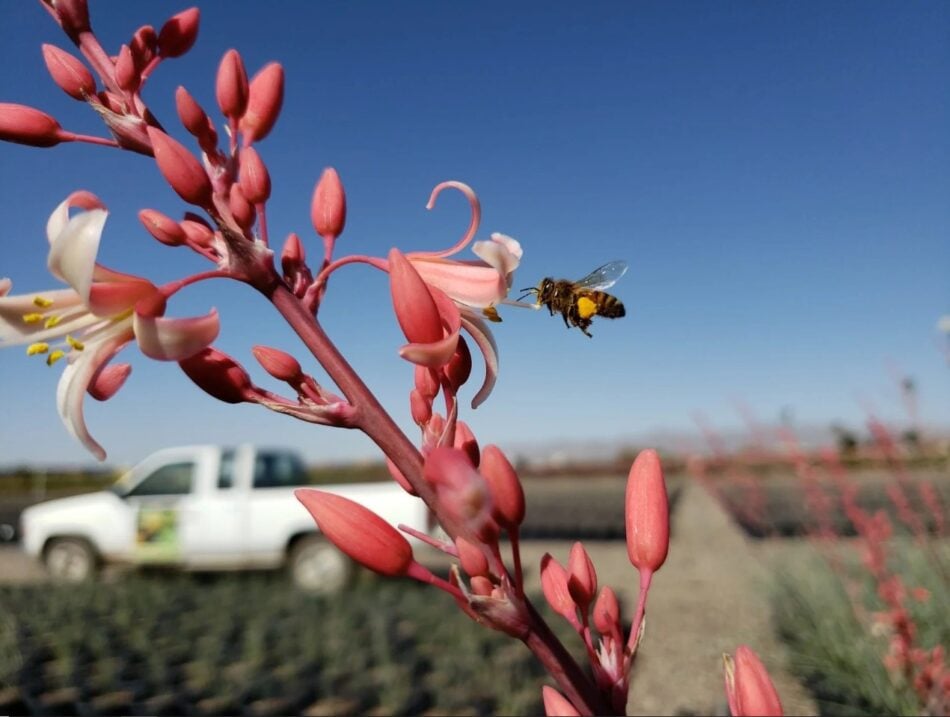
Contributor
- Topics: Pacific Plant People, Plants You Need
Fall 2024
Plant Recommendations by Pacific Plant People highlight climate-resilient, water-wise, and habitat-friendly plants well-suited for the Pacific region. Many recommendations prioritize native species, but some non-natives that thrive in a Mediterranean climate are also featured.
For Best Viewing, please use Desktop or Rotate Mobile View to Landscape


Hesperaloe campanulata ‘Lionheart’ or ‘Nuevo Leon’
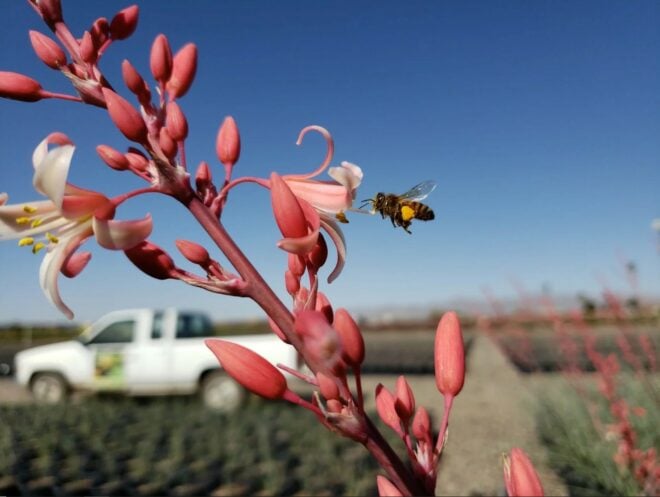
Jennifer is a California licensed Landscape Architect and educator with over 20 years professional experience. Her qualifications include being a LEED Accredited Professional, ReScape CA Qualified Professional and Rater, and Qualified Water Efficient Landscaper. She grew up in Southern California but earned her BLA in Landscape Architecture from Oklahoma State University. Jennifer is self-employed; she enjoys a wide mix of projects from landscape architectural design work to consulting and public speaking.
Hesperaloe campanulata ‘Lionheart’ or ‘Nuevo Leon’

Plant family: Asparagaceae, subfamily Agavoideae
Genus: Hesperaloe
Species: Agavaceae
Description
From the Grower, Mountain States Wholesale Nursery: Lionheart® is a selection of Hesperaloe campanulata that was chosen from our breeding program for its sturdy, upright flower spike to 10 feet and extended flower show. Blooms will begin mid-spring as with most other Hesperaloes, but can last all summer long even in the hottest climates. Individual blossoms have deep pink buds that open up to a nice iridescent white center. The leaves are very similar to that of Hesperaloe funifera, but smaller in scale and not so coarse. However it is a smaller species, growing to only 3 to 4 feet tall and wide. Plant Lionheart® in full sun and well drained soil. Plants will also tolerate reflected heat or partial shade. Native to Nuevo Leon, Mexico, this plant is hardy to at least 0 F.
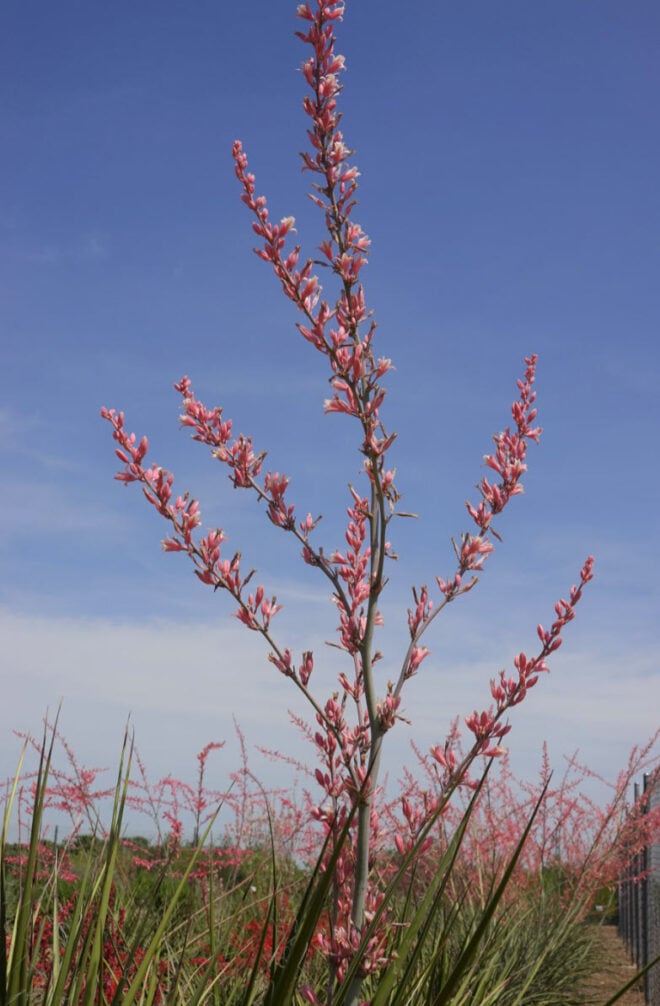
Water Use
Low to very low by experience, listed as unknown in WUCOLS
Conditions When It Thrives
It thrives in the heat.
USDA Hardiness zones 5-10
Ecosystem Services
Food and perches for pollinators, especially bees, hummingbirds, and moths
Native To
Nuevo Leon, Mexico
Geographic Range
Hot dry places
Availability
From Mountain States wholesale nursery breeding program, they do not sell to the public, but you may be able to special order their plants through your local nursery. If you’re in the trade, you may be able to get some plants through a wholesaler you have an account with.
Habitat & Height
3 to 4’ ht x sp spiky foliage, with infloresence to 10’ possible
Special Features
The stems are so incredibly tall. There isn’t anything else like it in the garden, the flowers may not keep to the expected seasons in mild climates.

This Hesperaloe’s super tall bloom stems can continue to rebloom on the same stem. In my garden in the hills of Oakland, California, I’m still getting new blossoms on a 3 year old stem.
Why They Love It
I love the ivory insides of the blossoms and I love that it puts up with a toasty little neglected corner of the garden. I planted it and ignored it and have been enjoying watching it ever since.
Seasonal Appearance/Dormancy
Evergreen
Advice, Design, Care Notes
Don’t cut the inflorescence after the flowers fade, mine is going on 3 years reblooming on the same flower stem. Hummingbirds seem to appreciate the high thin stem branches for a resting place. If seen from a little distance, it’s good to place this plant so that the flowers are viewed against the sky or something uncluttered like a nearby building so they won’t get lost in a busy background. Experienced up close, these stems tower overhead, providing an unoppressive sense of enclosure, being underneath something much lighter than a tree canopy. In my own garden, this plant is next to a hidden, slightly sunken path where I can sit and feel hidden, looking up through the plants at all the things we don’t notice most of the time.
Other Thoughts
Protect this plant if gophers are a problem. They have been known to munch through the base and roots from below, then surprise! There’s nothing underground to support the plant.





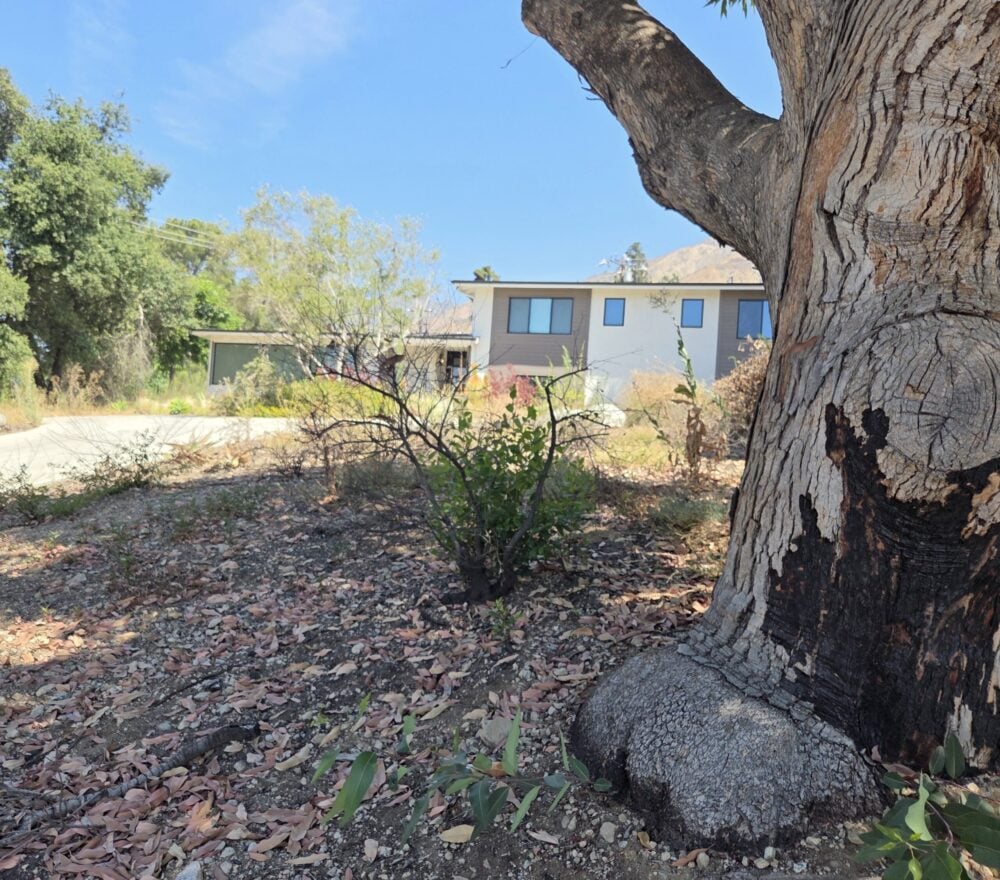
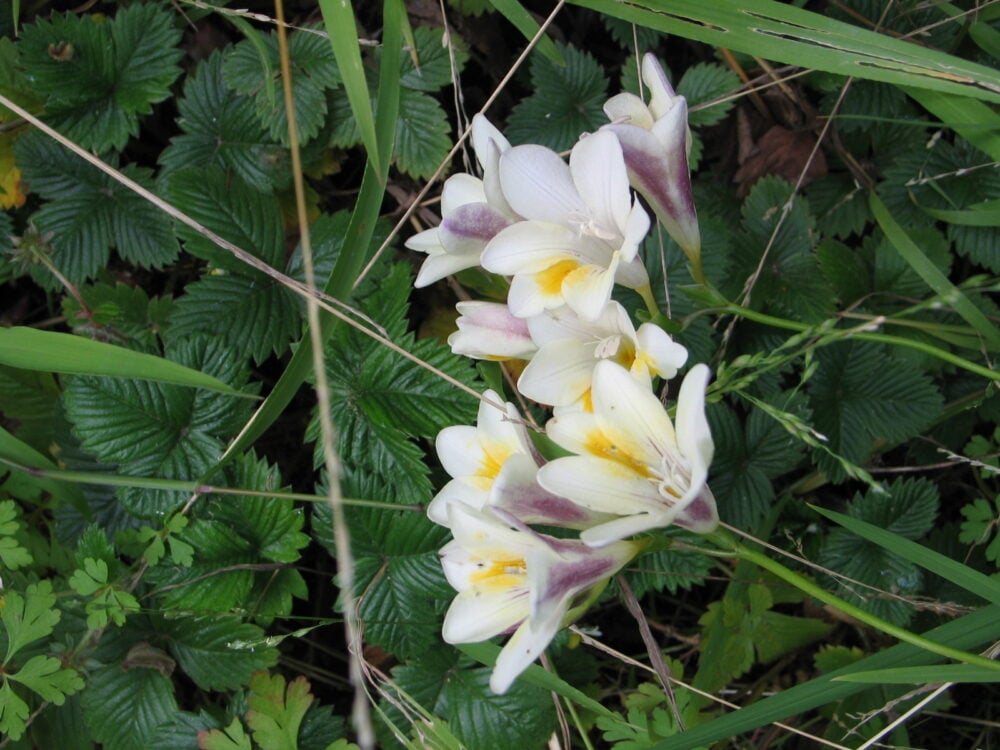
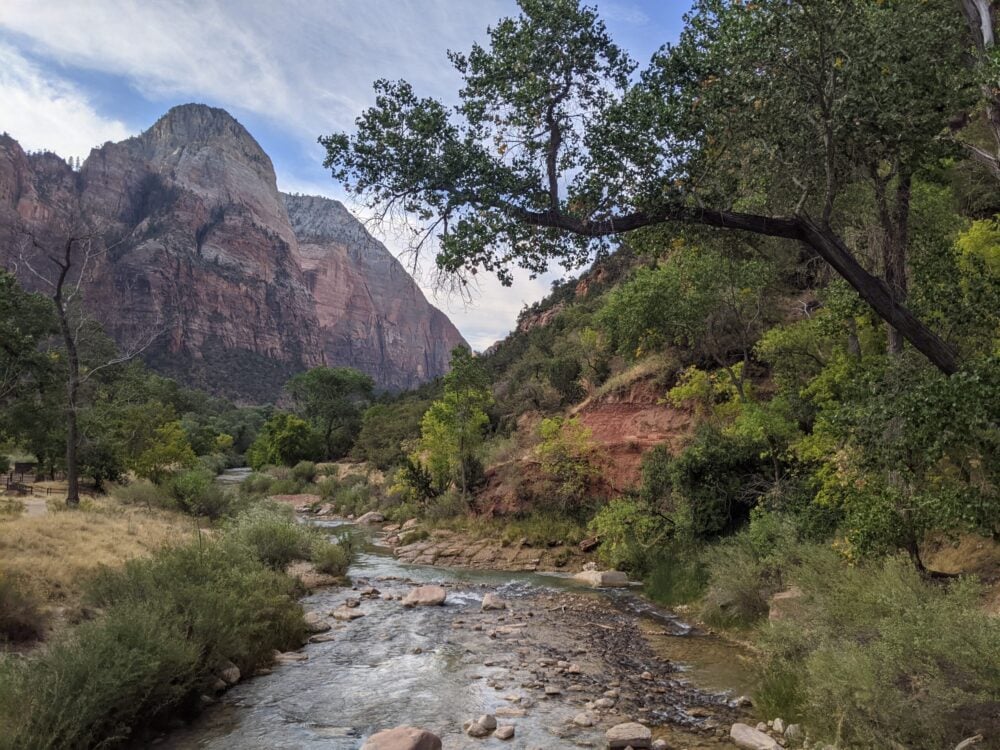


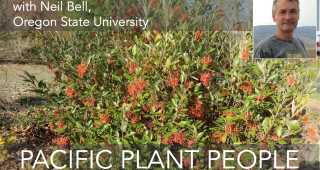
Responses